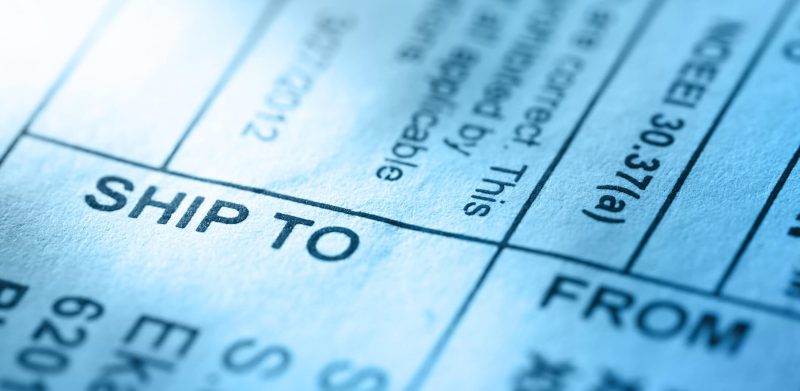
Declared value of exported goods – a shared responsibility between importer and exporter?
As a Canadian exporter, you may want to send promotional samples free of charge along with the products you sell to your international clients. On your commercial invoice, which features a list of items sold along with their values in dollars, you write down these promotional items as “free of charge.” It’s a common practice to give the value of these items as “zero dollars”, since importing clients usually don’t want to pay customs duties for freebies.
What value should you assign to samples?
Whenever the Canadian exporter is not the one responsible for paying the customs duties, the responsibility of preparing a customs declaration falls upon the foreign importer instead. Typically, when Canadian companies give the value of promotional samples as “zero dollars”, customs expect the foreign importer to give the correct value in their own declaration. These items may be sent free of charge, but they still have a manufacturing cost. Any product that passes through customs must have a value assigned to it. As far as customs regulations go, an item cannot be worth zero dollars: it must at least have a value equal to its production cost. For instance, someone receiving a car as a gift from a resident of a foreign country still needs to pay customs duties depending on the car’s commercial value.
Some foreign clients may try to work their way around this issue by asking the Canadian exporter to write down the value of the samples on the commercial invoice as “$1”. By giving an actual value to the samples on the declaration, they think they are in the clear while paying only minimal customs duties. This method may seem logical at first, but in truth, it can lead to unnecessary complications and risks.
What are the risks of giving the wrong value to a sample?
While writing the commercial invoice, the Canadian exporter must decide whether to write the value of the samples as “$1”, even when their commercial value is significantly higher, or to give their true value.
It is important to realize that customs may select the foreign importer for an audit. If the audit reveals the declared value of the samples to be inexact, the importer may be subject to penalties in proportion to the samples’ duties and taxes. In general, penalties are equal to 20 % of the difference between the product’s declared value and its real value. Thus, for an article worth $1000 but declared to be worth $1, the importer may have to pay 20 % of $999, so $199.8. If a shipment contained multiple high-value samples, penalties can rack up quickly. Sometimes, the importer may even have to retrospectively pay the customs duties for the improperly declared samples, in addition to penalties and interests.
Don’t think the Canadian exporter is not involved in this situation, which could sour relationships with the client and start a long argument regarding who should pay the penalties. The foreign importer may demand the Canadian exporter to pay a part or the totality of the penalties, exposing the importer to commercial and financial risk.
This first audit may also lead to the exporter’s other clients in the same country also being selected for customs audits of their own. Depending on the number of clients the exporter has in this country, the financial risk can be even higher than expected.
Examination of goods
In some cases, if the value of the good is checked during customs clearance, the Canadian exporter may be subjected to penalties as well. Customs could seize the goods and send penalties to importer and exporter alike.
Insurance
On top of that, if the samples were to be damaged during transportation, the Canadian exporter may have a hard time proving the samples’ real value to an insurance company.
Avoiding an unfortunate situation
When writing the commercial invoice, the Canadian exporter should make sure to have a written agreement with the foreign client regarding the declaring of the samples. If the client wants to declare the value of the samples as $1, you will want to have written proof that they are willing to assume responsibility for any customs issues that may follow.
To sum it up, even when the foreign importer is responsible for writing the samples’ real value in the declaration, the Canadian exporter should not simply try to ignore all responsibility. Even if the foreign importer is subjected to an audit and must pay the penalties, disputes between business partners can be avoided if both parties take the time to come to an agreement and have a customs broker help them with the procedures.
What if I understate the value of products sold?
Samples aside, by understating the value of any product sold to a foreign client, a Canadian exporter takes a significant risk. Let’s say a Canadian exporter writes the value of a product as $10 000 on the commercial invoice, even though the product is worth $20 000, to reduce the foreign importer’s customs duties. Customs may consider this as fraud, leading to customs investigations targeting both the importer and the exporter. Basically, both parties are getting into unnecessary trouble.
Further information on the topic: Declared values for samples: an unwanted surprise waiting for you?